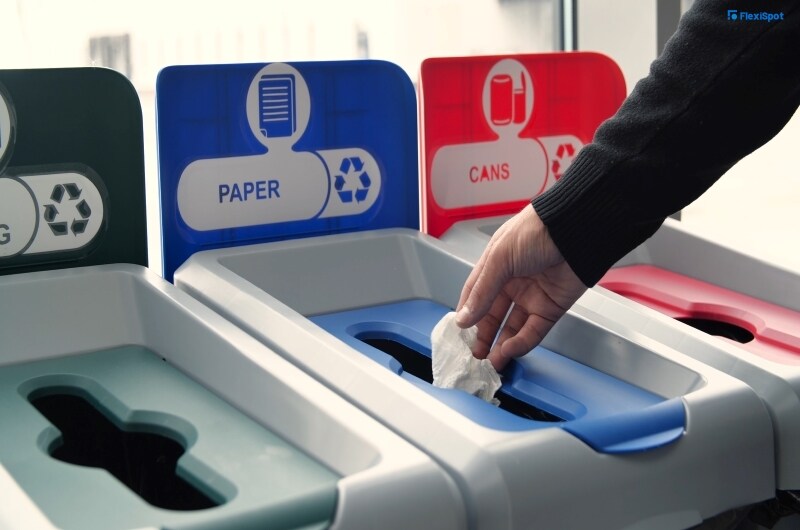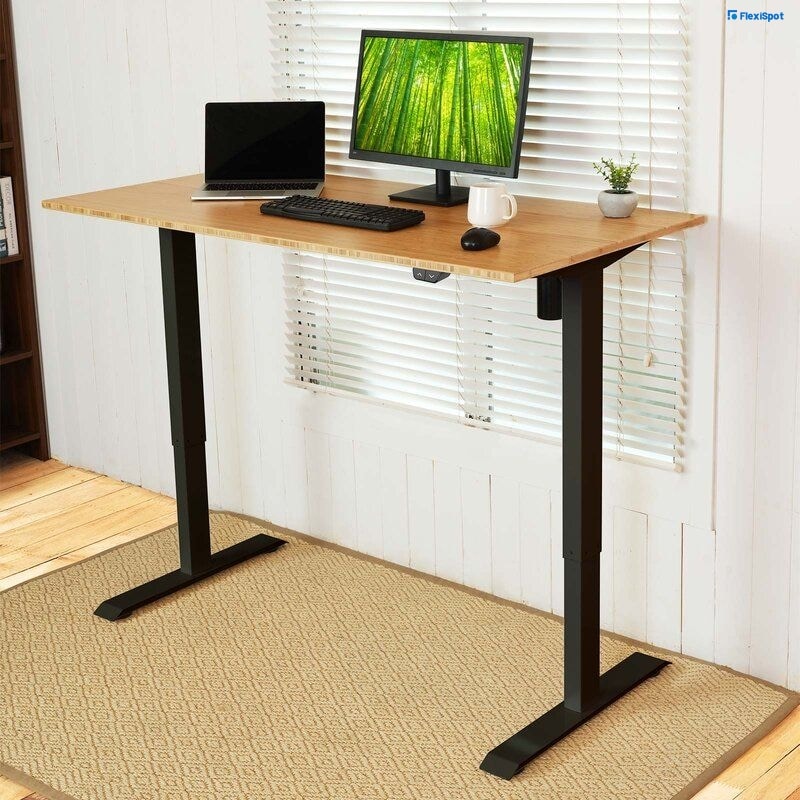Sustainability is a concept that most businesses get overwhelmed with. There are so many things you have to work on to make your business sustainable and eco-friendly. Add to this the fact that not all employees may have a positive response to the new direction, especially if it will change practices that they are accustomed to and are convenient for them.
Money is not the only thing you have to invest when you decide to push the green button. The upfront investment also involves a person’s effort, mindset, and commitment to the whole process. You have to be mindful of the smallest things in the system to ensure sustainability. When you’re not used to a stringent system, maintenance may be difficult in the early stages for an office with daily operations.
The tall order should not derail or discourage you, especially if you are true to your commitment. You’ll eventually have to expend money but in the meantime, there are easy ways to reduce your company’s carbon footprint while hoping to instill a love and care for the environment in your employees. If you are looking for eco-friendly practices, here are nine free ways to go about it. Your business will even save money in the long run.

1. Make sure recycling bins are available in the office.
Install trash sorting bins in the office to help segregate your daily trash. Label your bins properly by dropping examples of what to throw in a particular bin and not. Make sure this is in simple, bold fine print so that even the laziest employee could follow it. People don’t even look at these signs anymore so make sure it’s not overwhelming to look at, and that it’s easy to follow. What they use in Europe is a bin for paper, one for glass, another for plastic, and one for metal.
Why sort trash if they’ll eventually end up and get mixed in landfills? Well, sorting your trash will make it easier for your business to reuse and recycle possible waste.
2. Reuse office resources until they tear.
Before throwing out any item in your office, make sure you have already used it to its maximum. For instance, both the front and sides of a white bond paper must be used for practical and saving reasons. You may set up a reusable paper bin in your desk where the employees can just get a scratch paper when they need it. When your stapler or hole puncher suddenly stops working, do not panic and throw them away immediately. First, make sure if it can still do its function and try necessary repairs. You may also reuse folders and envelopes.
To reuse resources multiple times, clear your desk from a mess. It will be easier for you to determine what has not been used yet, what can still be of use, and what you have to throw out already. Our items often get lost in clutter which makes us buy new ones right away only to find out after our shopping run that there’s still a fresh supply of paper clips or short bond paper.

3. When not in use, switch off all electronics.
Set an example and make it a point that all printers, computers, lights, and the like are turned off when not in use. These items, when unplugged or turned off, will not only cut the cost of your electricity but also lessen your office’s energy consumption. Talk about a double whammy: you are doing good for the environment as well as cutting costs for the company.
4. Forbid the use of single-use plastic and cutlery in the office.
The term “single-use” is to be avoided at all costs when you are on your way to a sustainable lifestyle transition. You want to make use of items more than just once and do not immediately add up to the world’s global waste. Stock up your pantry with reusable coffee cups and glasses for. Get rid of plastic forks and spoons, and make sure the wood or stainless cutlery alternative is available.
If you want, you may give tumblers to your employees so that they could just refill them during office hours. They won’t be reaching out for single-use liquid containers anymore when they are used to using wood or eco-friendly utensils. You shouldn’t give it as an option for employees. Mandate an official announcement that disallows single-use plastic or any item.

5. Increase remote work opportunities.
The future work setup is hybrid, at least according to experts. Most companies have come to realize through the pandemic that they could continue operations even when their employees are working from home. This means companies will consider this when deciding how to move on from this health crisis.
What you can do now is to alter interview questions and change some set-ups for different job titles. If for example, you are hiring a new employee, provide work-from-home job positions. You may also reduce the number of workdays for each employee and have different groups work in the offices on a rotational basis.
6. Organize internal seminars on sustainability and environmental-friendly initiatives.
From time to time, host sustainability seminars for your employees. Invite environmental advocates to speak about their own sustainable journeys. Rotate the assignment of organizing talks and events between departments and teams so that everyone will actively look for information on sustainability. When armed with information, your employees will know how to take care of the environment better.

7. Offer carpool services.
Another killer of the environment is the smoke that comes out of cars and into the air every single day. To reduce carbon footprint, arrange a company van to fetch your employees from their houses and take them together to the office. Have an afternoon service as well when going home. Divide the employees into groups based on where they live and have at least two routes available so the service can accommodate as many people as possible.
8. Organize contests for eco-friendly initiatives.
For employees to take part in eco-friendly endeavors, organize interdepartmental contests. For example, you may host an eco brick contest and make the departments collect plastic to put into bottles. The department with the most number of eco-bricks, in the end, wins extra leave days.

9. Consider having uniform days.
Most often than not, employees buy clothes for the office. If you require a uniform on most days (let’s say 3 days a week), then they will be buying fewer clothes. Note that the trillion-dollar fashion industry is one of the top five contributors to global waste.

FlexiSpot Helps the Environment in its own little way
FlexiSpot is a furniture company vowing to do better for society including its loyal patrons. The company’s core mission is to upgrade its clients’ quality of life. Because of this key goal, every decision of FlexiSpot has the client in mind—how it will affect the lives of its customers, serve the communities that rely on their products, and the impact it has on the overall state of the planet. FlexiSpot knows that it’s still a long arduous journey to contribute significant change to solve the world’s growing climate and waste problem. But even with the tall order, FlexiSpot has remained committed to starting even the smallest initiatives.
On behalf of its customer, FlexiSpot pledged to plant one tree for every purchase of its sustainable bamboo-made products under the One Tree Planted Project.
It has ramped up sourcing of more sustainable materials for its desktops. Because bamboo grows faster and in greener conditions, the company is developing more standing desks made from 100% of this eco-friendly wood alternative. It sources its bamboo goods in Asia with locals making them by hand for a living wage.
FlexiSpot hopes for a sustainable future for all.
